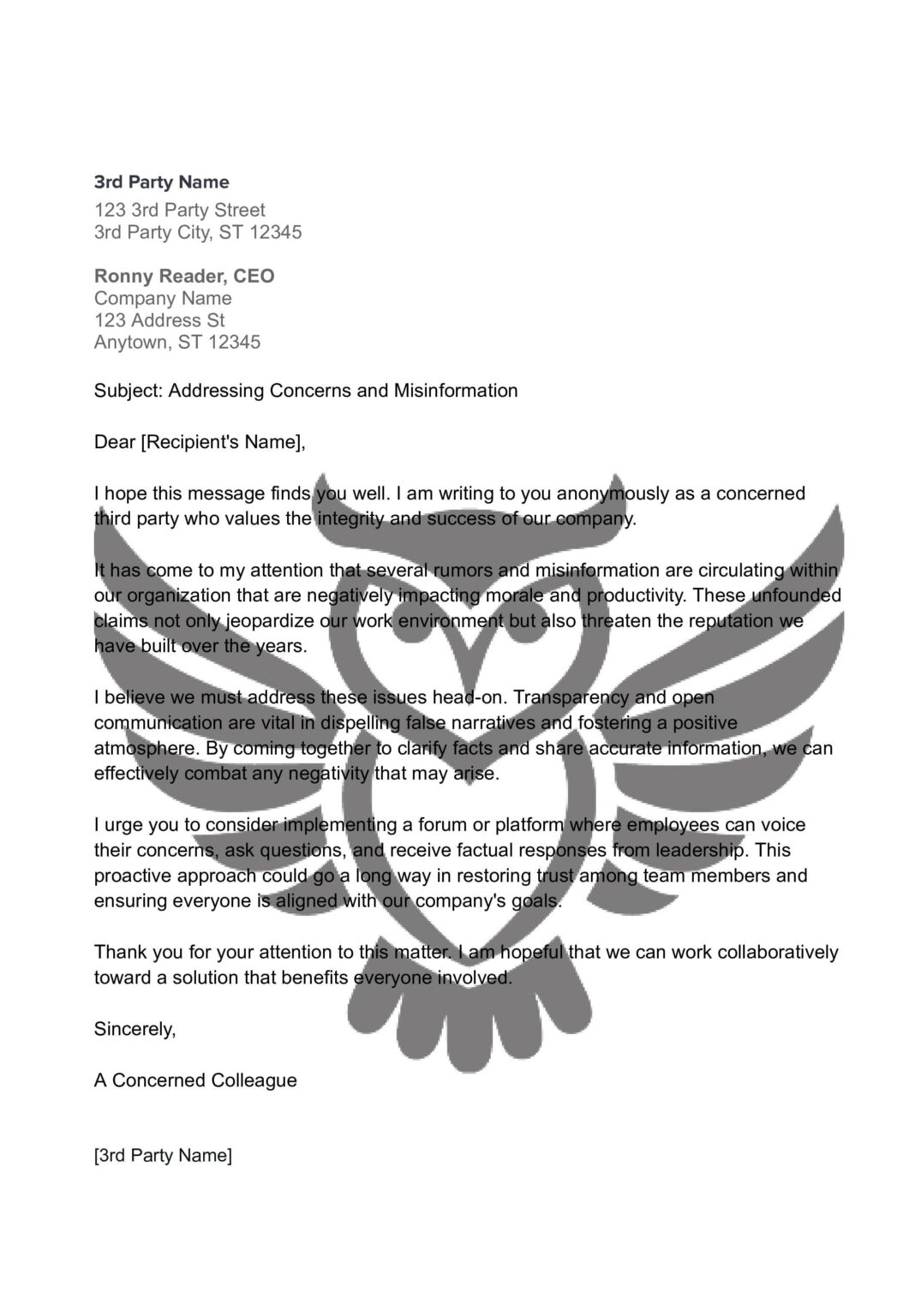
It’s not just about blaming others; it’s about fairness and honesty.
 The Importance of Anonymous Letters and Whistleblowing
The Importance of Anonymous Letters and Whistleblowing
It’s not just about blaming others; it’s about fairness and honesty. When workers see something wrong, like unfairness or financial problems, speaking up helps fix these issues fast.
Stopping Rumors and Misinformation
Whistleblowing does more than reveal problems. It stops rumors and misinformation before they spread. This keeps communication clear. It prevents misunderstandings and builds a culture of trust and transparency. Rumors and misinformation can confuse everyone, but whistleblowing keeps things straight.
Power of Anonymity
Anonymity empowers people. When workers know they won’t face backlash, they feel safer speaking up. This protection encourages them to share concerns about rumors and misinformation without fear. Anonymity helps balance power and ensures that important issues come to light.
Real-Life Changes
Whistleblowing can lead to major changes. It reveals financial wrongdoing and improves employee treatment. These actions help organizations correct mistakes and rebuild trust. Success stories inspire others to speak up, creating a more honest workplace. Stopping rumors and misinformation becomes a shared goal.
The Community Advantage
For the community, anonymous letters to the editor bring awareness to concerns, rumors, and misinformation. These letters inform everyone about local issues. They encourage community members to act and solve problems together. Awareness leads to informed decisions and stronger community bonds.
Addressing rumors and misinformation through whistleblowing isn’t just good; it’s essential. It helps companies meet ethical standards and build trust. This boosts employee morale and loyalty. Encouraging whistleblowing and anonymous letters leads to a healthier workplace and community. It’s about honesty, trust, and taking action against misinformation.

The Power of Anonymous Letters in the Workplace
Anonymous letters have become vital for maintaining integrity in organizations. When employees notice something amiss, whether it’s unfair practices or financial issues, they can use anonymous letters to speak up without fear. This action not only uncovers problems but also stops rumors and misinformation from spreading wildly.
Benefits of Addressing Rumors and Misinformation
Rumors and misinformation can quickly create chaos. By addressing them early, companies maintain clear communication. This prevents misunderstandings and builds a transparent, trustworthy environment. Employees feel included and heard, reducing the chance of any misinformation taking root.
Empowering Employees Through Anonymity
Anonymity empowers employees to report concerns confidently. It provides safety, ensuring they won’t face backlash. This encourages more people to address rumors and misinformation, effectively balancing power and protecting those who bring issues to light.
Advantages for the Company
Companies benefit significantly from this approach. By offering confidential reporting options, they show employees that their voices matter. This can stop small issues from turning into big scandals. Additionally, it supports a culture where transparency thrives, preventing rumors or misinformation from damaging the workplace.
Real-World Impact
In many cases, anonymous letters have led to positive changes. They have exposed financial misconduct and improved employee treatment. These actions not only correct issues but also help rebuild trust. They inspire others to speak up, combating rumors and misinformation effectively.
The Necessity of Action
Ultimately, tackling any misinformation through anonymous letters is not just beneficial; it’s essential. It helps companies uphold ethical standards and maintain a trustworthy image. This, in turn, boosts employee morale and loyalty. Encouraging this practice leads to a healthier work environment and a stronger, more resilient organization.
Get Started Today by looking at our Basic One (1) Recipient – Anonymous Letter that can be designed perfectly as a Rumors and Misinformation Letters.